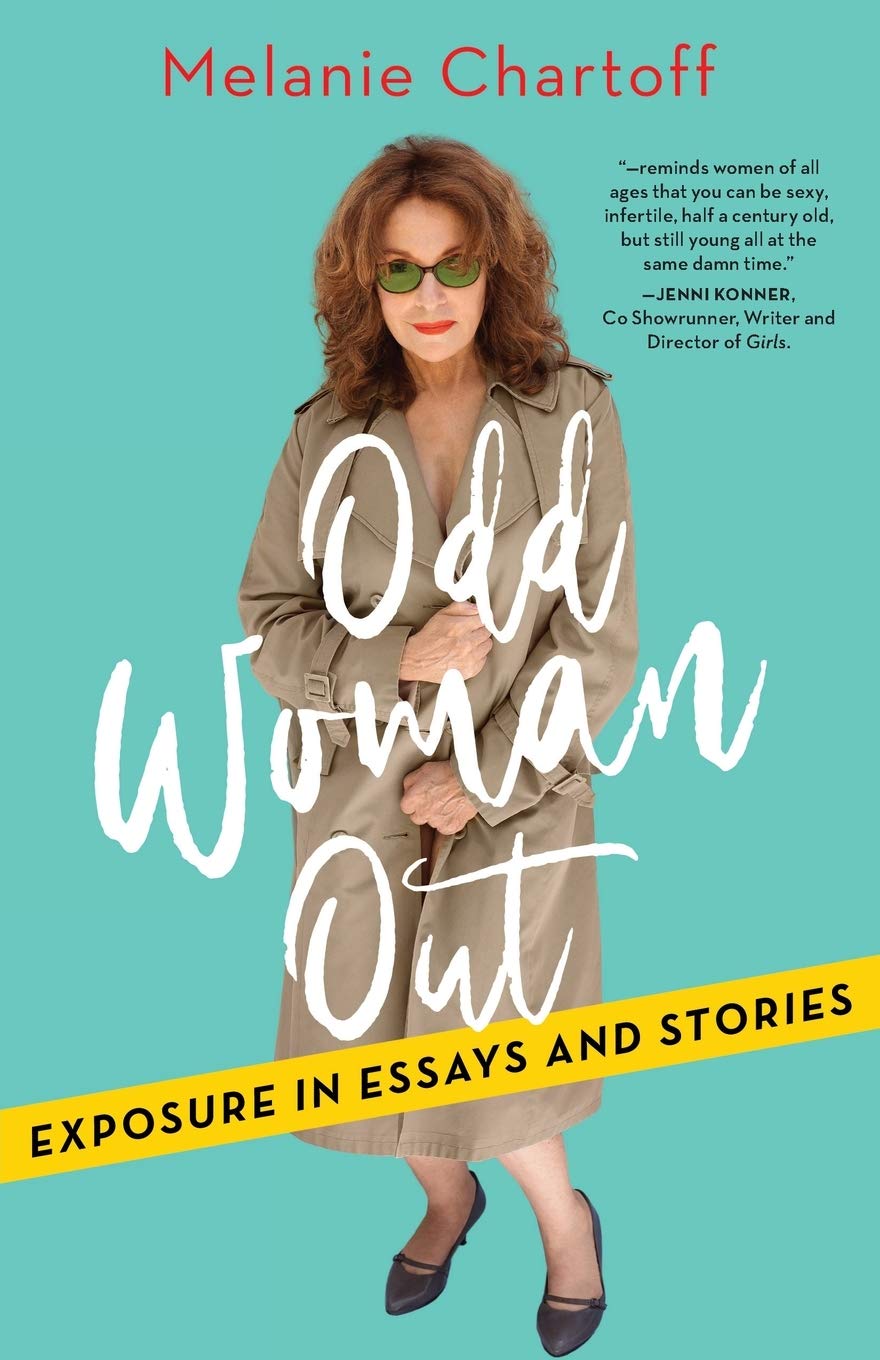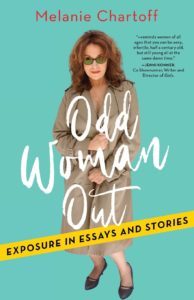
Odd Woman Out: a Q&A with Melanie Chartoff
Melanie Chartoff has worked as an actor both on and off Broadway, and she’s endeared herself to audiences with the characters she’s created on Fridays, Seinfeld, Newhart, Parker Lewis and Rugrats. Now, she’s turned to writing, and she talks to Fiction Editor Yona Zeldis McDonough about Odd Woman Out: Exposure in Essays and Stories (Books Fluent), her late-in-life pivot.
YZM: You call your childhood was an “abusement park; can you elaborate?

MC: I was raised in the shadow of Savin Rock in West Haven, Connecticut, the first amusement park in the U.S., with all kinds of wild rides, stock car races, and ball tosses as fronts for gambling dens.
Our household was a “Hellzapoppin” parody if that’s possible — full of psychological swordplay between my parents, and eventually between my father and me. My sister was constantly running for her life from highly dramatic scenes. No blood was let, but that might have relieved some of the constant pressure to be compliant according to ever vacillating standards. Of course, there was a lot of laughter, hysterical shrill, bitter and confusing, most often a detour from tears.
YZM: How, if at all, did your work as an actor inform your writing?
MC: As actors, we create characters from the inner feelings out, with more going on in the silences between the sentences than within the words themselves. In stories I create, I fill in those blanks with all the inner commentary beneath the actions. But I always wrote. My first play, “The Queen’s New Dress,” was produced in my grammar school. When I didn’t get the lead, I was so mad, I decided I’d better be an actor, too. I wanted to do it all.
YZM: Though a collection of essays, your story still has a happy ending; do you agree?
MC: Yes. The stories take place over a half century, and each represents a moment of realization in a rather slow coming to consciousness. The tone grows more optimistic as my non-performer self-love enlarges and I’m able to live with myself very comfortably. It takes some of us a longer time to grow up than others. The ending is happy with a touch of bittersweet as it culminates at the beginning of Covid.
YZM: Is sexism as prevalent in comedy today as it was when you were young or have things changed?
MC: I’ve not experienced it so much, but I haven’t been a standup or on a comedy series for a number of years. I’ve been doing play readings for Eugene Pack who writes terrifically funny roles for complicated women. So my comic chops feel served.
When I started in late night television, it wasn’t that men were suppressing us female writers — they just didn’t get our comedy. I recall I wrote some menstrual humor early on, and the male writers were horrified. My bit was about other uses of mini pads as absorbent household clean-ups. I’d stick them to my hands and wipe counters and walls. I suggested they could be perspiration shields or eye masks. But it’s a touchy subject. Even I was put off during that daring menstrual dance in “Borat: Subsequent Moviefilm.”
YZM: Do you feel being a woman of a certain age works against you?
MC: In some cases against, but in some cases for me. In terms of layers of wisdom and human understanding and talent, I’m good. But I don’t have as much stamina to do it all as I did.



